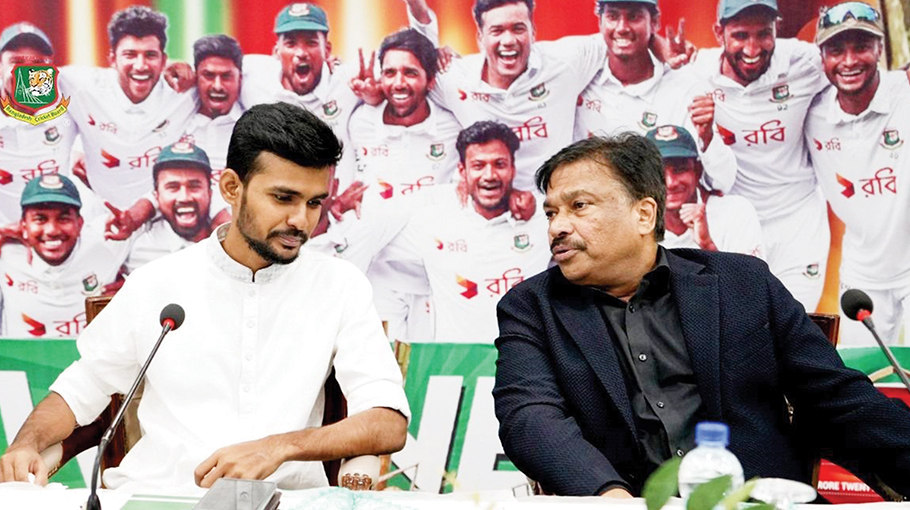BCB comes under intense scrutiny

The current state of the Bangladesh Cricket Board (BCB) has come under intense scrutiny, particularly from Youth and Sports Adviser Asif Mahmud. The panic within the BCB, led by President Faruque Ahmed, has become a focal point of criticism, a scenario that seemed unimaginable just a few months ago.
The BCB's operations have been described as chaotic, largely due to the absence of many directors. This situation has been exacerbated since the student-led movement in August, which resulted in the fall of the Awami League government. Nazmul Hassan Papon, who previously held the top positions in both the sports ministry and the BCB, went into hiding following the government's collapse, leaving the BCB in a state of limbo.
The Youth and Sports Adviser Asif Mahmud, openly spoke about the 'haphazard' manner in which the high ups of the Bangladesh Cricket Board (BCB), headed by president Faruque Ahmed, is running its operation.
Asif, now the country's sports administration at the moment, told the media in a press conference held at the secretariat on Sunday, when he mentioned the many activities and achievements of the youth and sports ministry in the first 100 days of the interim government.
“It's true that it (BCB) is running in a haphazard way because many directors are not present." said Asif.
"New directors have to be added following the constitution of the BCB. We face many challenges in doing that. The reformation work of sports bodies is still ongoing. After it's completed, we can appoint new directors in a systematic manner. The matter of distributing departments of the BCB is still there. By doing so, we can further mobilise BCB's activities," the Adviser added.
Faruque Ahmed stepped into a leadership role amidst this turmoil, inheriting a board that was practically paralysed. Despite the passage of nearly three months, the BCB remains stagnant, with the new leadership struggling to establish standing committees, which are crucial for the board's internal operations.
The resignation of three directors and the cancellation of 11 directorships, including Papon's, have left the BCB with only 10 active directors. This lack of structure has forced Faruque to take on multiple roles, leading to inefficiencies and a lack of clear direction.
The absence of a long-term strategic plan has further compounded the BCB's issues. Key areas such as women's cricket, age-level cricket, and regional cricket are suffering from a lack of guidance and vision. The board's inability to appoint new directors and distribute responsibilities effectively has hindered its ability to mobilise and execute its activities efficiently. Faruque's tenure has been marked by a few notable actions, including the controversial dismissal of Chandika Hathurusingha as head coach. This decision, perceived by many as driven by personal motives rather than professional judgment, has only added to the perception of instability within the BCB.
The media's growing impatience with the BCB's slow progress is now mirrored by the sports ministry's concerns. The need for a comprehensive overhaul and a clear strategic direction is more pressing than ever, as the BCB navigates through this period of uncertainty and attempts to restore its credibility and effectiveness.




